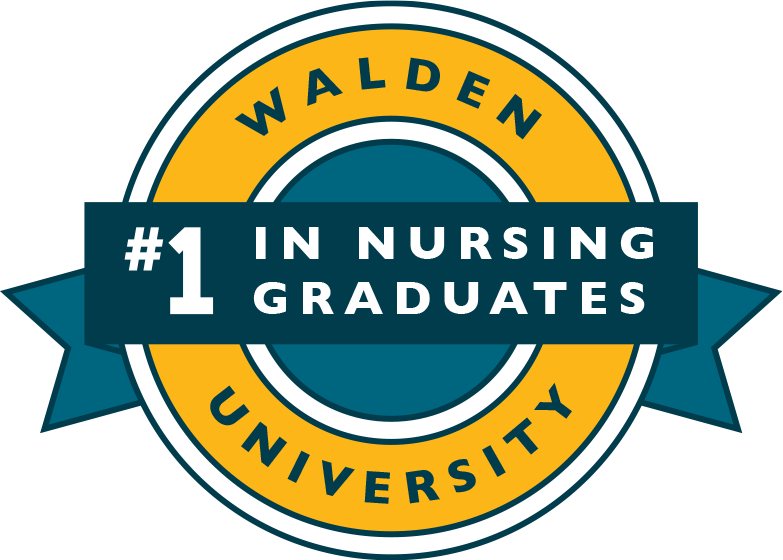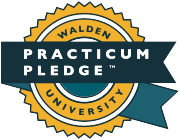Choose the BSN to MSN track if you are a registered nurse (RN) and have already earned your Bachelor of Science in Nursing (BSN) degree.
Curriculum - Course-Based
Degree Completion Requirements
- 53 quarter credits
- Core courses (23 cr.)
- Specialization courses (25 cr.)
- Capstone course (5 cr.)
View the COMPLETE CURRICULUM PLAN
This sequence represents the minimum time to completion. Time to completion will vary by student, depending on individual progress and credits transferred, if applicable. For a personalized estimate of your time to completion, call an Enrollment Specialist at 844-814-0652.
Curriculum - Tempo Learning®
The Tempo Learning® degree completion option is ideal for busy working professionals like you. Your progress is measured by the mastery or demonstration of skills, abilities, and knowledge in a particular area of expertise (AoE).
Each competency has been carefully designed by expert faculty with input from employers, with your education and future employment in mind.
Degree Completion Requirements
- 53 quarter credits
- Core Competencies (23 cr.)
- Specialization Competencies (30 cr.)
View the COMPLETE CURRICULUM PLAN
Choose the RN to MSN track if you are a registered nurse (RN) entering the MSN program with a hospital diploma or an associate degree in nursing.
Curriculum - Course-Based
Degree Completion Requirements
- 79 quarter credits
- Foundations courses (26 cr.)
- Core courses (23 cr.)
- Specialization courses (25 cr.)
- Capstone course (5 cr.)
View the COMPLETE CURRICULUM PLAN
This sequence represents the minimum time to completion. Time to completion will vary by student, depending on individual progress and credits transferred, if applicable. For a personalized estimate of your time to completion, call an Enrollment Specialist at 844-814-0652.
Curriculum - Tempo Learning®
The Tempo Learning® degree completion option is ideal for busy working professionals like you. Your progress is measured by the mastery or demonstration of skills, abilities, and knowledge in a particular area of expertise (AoE).
Each competency has been carefully designed by expert faculty with input from employers, with your education and future employment in mind.
Degree Completion Requirements
- 78 quarter credits
- Foundation Competencies (25)
- Core Competencies (23)
- Specialization Competencies (25)
- Capstone Competencies (5)
View the COMPLETE CURRICULUM PLAN
If you are a registered nurse (RN) and have earned your bachelor's in nursing degree, you can use these tracks to get started on your doctoral nursing degree.
Add an MBA to our MSN
UNLOCK YOUR BUSINESS POTENTIAL
Gain in-depth insights into nursing leadership and business management with Walden's new, streamlined MSN to MBA path.
- Earn your MSN and then complete your MBA in as few as 12 months.*
- Apply up to three courses from your MSN program to your MBA program.*
Questions? Our Enrollment Specialists are here to give you answers.
*Walden Master of Science in Nursing (MSN) graduates can transfer up to four courses into the Master of Business Administration (MBA) program with a Self-Designed specialization and complete the program in as few as nine months, depending on MSN program specialization . Tuition and time to completion for those with an MSN from another university may vary depending on individual progress and credits transferred, if applicable. Tuition and time to completion may be reduced if transfer credits are accepted, or if you receive grants, scholarships, or other tuition reductions.
Admission Requirements
Program Admission Considerations (RN-MSN): Registered nurses who hold a hospital diploma, associate degree in nursing, or bachelor’s degree (other than BSN)
Program Admission Considerations (BSN-MSN): A bachelor's degree or higher
General Admission Requirements: Completed online application and transcripts
- The Technical Standards Policy Form, a statement of understanding of the MSN NP practicum requirements.
- Additional Walden admission criteria required. Contact an Enrollment Specialist for more details.
More information for international applicants.
Personalized Practicum Support
After you register for the Walden University Practicum Pledge™ (along with other requirements), if you can’t identify a site and preceptor, our dedicated Field Placement Team partners with you to secure your site and preceptor to help you find a match. This enhanced support gives you added confidence as you start your degree journey.
| Curriculum Component | Requirements | Cost | AMOUNT |
|---|---|---|---|
| Tuition | 53 quarter credit hours | $495 per quarter hour | $26,235 |
| Program Fee | Per quarter | $175 | $1,050 |
| $27,285* | |||
| BELIEVE & ACHIEVE SCHOLARSHIP YOUR TUITION | -$4,950 $22,335†* | ||
*Tuition reflects the minimum time to completion. Time to completion varies by student, depending on individual progress and credits transferred, if applicable. Tuition and time to complete may be reduced if transfer credits are accepted, or if you receive grants, scholarships, or other tuition reductions. Walden may accept up to 25 transfer credits. For a personalized estimate of the number of your transfer credits that Walden would accept, call an Enrollment Specialist at 844-768-0109.
Tuition and fees are subject to change. Books and materials are not included and may cost between $1,500 to $2,000. Students may also incur additional costs related to practicum, including but not limited to costs of travel to their practicum site, practicum onboarding fees, per quarter practicum fees, and liability insurance costs.
†*Represents course-based learning format, BSN-MSN track, no optional sub-specializations, minimum time to completion, and Believe & Achieve Scholarship. Your actual total program time and costs may vary. Believe & Achieve Scholarship savings based on current tuition. See Scholarship Details for more information.
| Curriculum Component | Requirements | Cost | AMOUNT |
|---|---|---|---|
| Tuition | 26 RN Foundational quarter credit hours | $425 per quarter hour | $11,050 |
| 53 MSN quarter credit hours | $495 per quarter hour | $26,235 | |
| Program Fee | Per quarter | $175 | $1,400 |
| $38,685* | |||
| BELIEVE & ACHIEVE SCHOLARSHIP YOUR TUITION | -$4,950 $33,735†* | ||
*Tuition reflects the minimum time to completion. Time to completion varies by student, depending on individual progress and credits transferred, if applicable. Tuition and time to complete may be reduced if transfer credits are accepted, or if you receive grants, scholarships, or other tuition reductions. Walden may accept up to 35 transfer credits. For a personalized estimate of the number of your transfer credits that Walden would accept, call an Enrollment Specialist at 844-768-0109.
Tuition and fees are subject to change. Books and materials are not included and may cost between $1,500 to $2,000. Students may also incur additional costs related to practicum, including but not limited to costs of travel to their practicum site, practicum onboarding fees, per quarter practicum fees, and liability insurance costs.
†*Represents course-based learning format, RN-MSN track, minimum time to completion, and Believe and Achieve Scholarship. Your actual total program time and costs may vary.
Walden’s Tempo Learning® program options follow a subscription-based pricing format. Students are billed a flat rate for each three-month subscription term. All pricing is represented in U.S. dollars and is subject to change.
| Program | Subscription Period Tuition | Subscription Period PROGRAM Fee | Subscription Period Time Frame |
|---|---|---|---|
| Master of Science in Nursing (MSN) | $3,000** | $175 | 3-month subscription period |
| You may be able to complete your MS in Nursing degree in 14 months for under $13,000 for select specializations.* | |||
*Represents Tempo Learning® format, BSN-MSN option, Believe & Achieve Scholarship, and the fastest pace of our top 25% transfer students in this program in the Tempo Learning® format. Your actual total program time and costs will depend on your individual pace and transfer credits. A student’s pace is usually determined by their experience, ability to work independently, and availability. Believe & Achieve Scholarship savings based on current tuition. See Scholarship Details for more information.
Financial Aid
Financial aid is available for this program. Our financial aid advisors can help you identify funding opportunities to help you pay for your education.
With Tempo Learning, you may be able to complete your MSN degree in as few as 14 months for as low as $13,000 for select specializations.*
*Represents BSN-MSN option, Tempo Learning® format, Believe & Achieve Scholarship, and the fastest pace of our top 25% transfer students in this program in the Tempo Learning® format. Your actual total program time and costs may vary. Tuition and fees are subject to change. See Scholarship Details for more information.
Program Outcomes
Become a Nurse Leader in Information Technology
In Walden’s MSN in nursing informatics program, you’ll build a strong foundation in collecting, analyzing, and evaluating essential healthcare data. Learn to identify gaps in patient support and patient care and use information to make real-world improvements in those areas. Build the communication skills needed to translate the needs of direct-care providers to IT staff. Learn how to train and support nurses and physicians in new technology system implementations.
Optional Informatics Nursing Certification (RN-BC) is offered through the American Nurse Credentialing Center (ANCC).
What’s the Career Impact of Earning an MSN in Nursing Informatics?
Nurse informatics specialists are in demand. With the rise of electronic health records (EHRs) and the need to drive down soaring healthcare costs, organizations need nurse informaticists to help them implement and adopt new and upgraded technologies.1
By earning your nursing informatics MSN online, you can open the door to new opportunities in this field. Define your path, expand your opportunities, and play a bigger role in healthcare’s transformation.
Career options for nurse informaticists:2
- Clinical analyst
- Informatics nurse specialist
- Director of clinical informatics
- Nurse educator/instructor
- Consultant
- Chief nursing informatics officer
- Associate professor/professor
- Manager of clinical informatics
- Clinical applications specialist
Career options may require additional experience, training, or other factors beyond the successful completion of this degree program.
Learning Outcomes
Upon completing this specialization, graduates will be prepared to:
- Synthesize organizational/systems leadership for cost-effective specialist nursing practice that contributes to high-quality healthcare delivery, advancement of the nursing profession, and social change.
- Critique evidence-based literature drawing from diverse theoretical perspectives and pertinent research to guide decision making that demonstrates best practices for specialist nursing practice in a global society.
- Integratively assess, diagnose, plan, implement, and evaluate cost-effective healthcare strategies that reduce health disparities by patient/population advocacy for access to specialist nursing care.
- Demonstrate the ability to effectively communicate using audience-specific oral, written, and information technology for professional delivery of specialist nursing care.
- Evaluate health needs of diverse populations for necessary teaching/coaching functions based on specialist nursing knowledge to restore/promote health and prevent illness/injury.
- Exhibit ongoing commitment to professional development and value of nursing theories/ethical principles (altruism, autonomy, human dignity, integrity, social justice) in accordance with ethically responsible, legally accountable, specialist nursing practice.
- Implement specialist nursing roles to promote quality improvement of patient-centered care in accordance with professional practice standards that transform health outcomes for diverse populations.
Testimonials
I chose Walden to earn my advanced degree because I was pleased with the design and presentation of the curriculum, its flexibility, and the very encouraging reviews of the experiences of current students and alumni.
I was very surprised about how well-prepared I felt for my certification boards after graduation. The program prepared me for entry to practice.
Choosing to specialize as a family nurse practitioner has opened many doors. ... I can explore many areas in nursing and still be a nurse practitioner.
Related Articles
FAQ About Walden's Master of Science in Nursing (MSN) Nursing Informatics Specialization
Health informatics, also sometimes referred to as “medical informatics,” sits at the junction of two thriving industries: healthcare and information technology (IT). Professionals in this interdisciplinary field design and develop the information systems necessary for efficient acquisition, storage, and distribution of health-related data. Nurse informaticists are able to integrate data, information, and knowledge to support decision-making by patients, nurses, and other caregivers in all roles and settings.
Due to recent legislation calling for healthcare organizations to adopt electronic health records, nursing informatics professionals are in high demand. Many work in hospitals, healthcare organizations, universities, consulting firms, or corporations that develop and market healthcare information systems. Some typical positions in the field include director of clinical information, clinical analyst, informatics researcher, and clinical informatics coordinator.
According to the U.S. Department of Health and Human Services, incorporating electronic health records (EHR) helps to “reduce paperwork and administrative burdens, cuts costs, reduces medical errors and most importantly, improves the quality of care.* From administrative offices to operating rooms, health informatics is the driving force behind enterprise-wide data systems that collect, store, and make EHR easily accessible to healthcare professionals.
*Source: HealthIT.gov, Medical Practice Efficiencies & Cost Savings
A good nursing informatics master’s program provides students with in-depth knowledge of:
- Health information technology
- Health information systems management
- Quality assessment and improvement
- Strategic and tactical planning
- Evidence-based research and evaluation
- Business and financial aspects associated with health information
1Healthcare Information and Management Systems Society, Inc. (HIMSS), Nursing Informatics Key Role in Defining Clinical Workflow, Increasing Efficiency and Improving Quality.
2National Center for O*NET Development | Health Informatics Specialist
Commission on Collegiate Nursing Education (CCNE)
The baccalaureate degree program in nursing (BSN), master’s degree program in nursing (MSN), post-graduate APRN certificate program, and Doctor of Nursing Practice (DNP) program at Walden University are accredited by the Commission on Collegiat e Nursing Education (www.ccneaccreditation.org).
Program Note: The MSN program with a specialization in Nurse Executive, Nursing Education, Nursing Informatics, or Public Health Nursing is not a licensure-leading program and will not prepare students as nurse practitioners.
Note on Certification: Note on Certification: Walden’s MSN program is designed to provide the academic degree required to apply for national certifications. Because no graduate program can guarantee that graduates will achieve national certification, we encourage students to consult the appropriate credentialing center for the specific requirements. It is an individual’s responsibility to understand, evaluate, and comply with all requirements relating to national certification as requirements vary widely. Walden makes no representations or guarantee that completion of Walden coursework or programs will permit an individual to obtain national certification. For more information about certification programs, students should contact the American Nurses Credentialing Center at www.nursingworld.org/ancc, or other certification websites.
Note on Competency-Based MSN Specializations
Walden University is currently unable to accept applications for the competency-based MSN specializations in Nurse Executive, Nursing Education, and Nursing Informatics from residents of the following states: Alaska, New York, and Rhode Island.
Walden University’s competency-based options are priced as an all-you-can learn model, where students subscribe to three-month learning periods instead of paying for courses or credit hours. Walden offers monthly starts, the first Monday of every month, for the competency-based option.
Note on Field Experience and Relocating
Students who are considering relocating are advised to contact their Student Success Advisor prior to any decision to relocate in order to determine how relocation may impact progress in their program. Advisors can provide information and guidance on how relocating may result in possible changes, restrictions, and/or additional requirements affecting field experience. Each Board of Nursing and Higher Education Authority governs the field experience rules and regulations in their respective states, and students may be unable to complete field experience in the state in which they plan to relocate. While Walden is committed to working collaboratively with students to secure field sites across the United States, it is imperative that students contact their Student Success Advisor immediately when considering relocating.



















